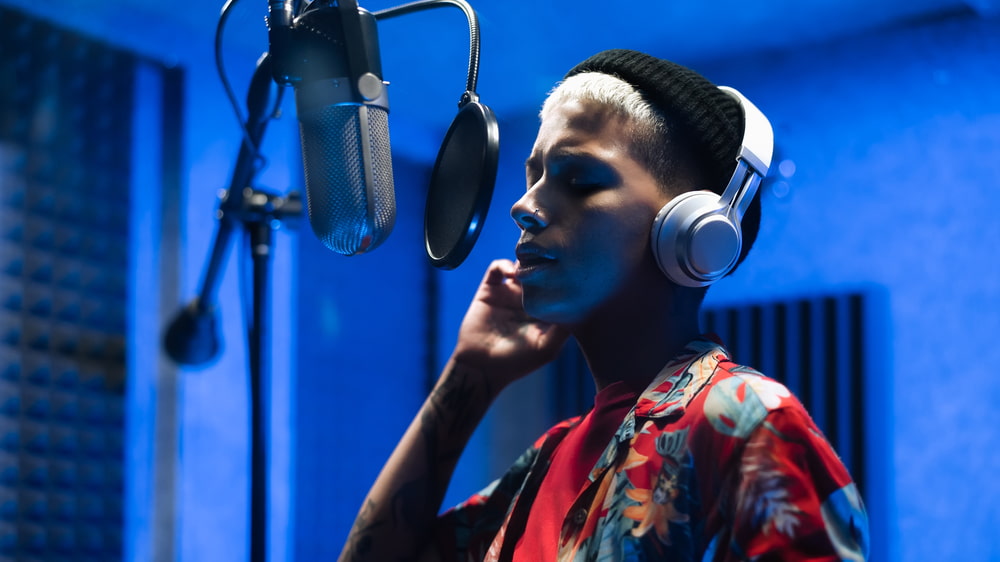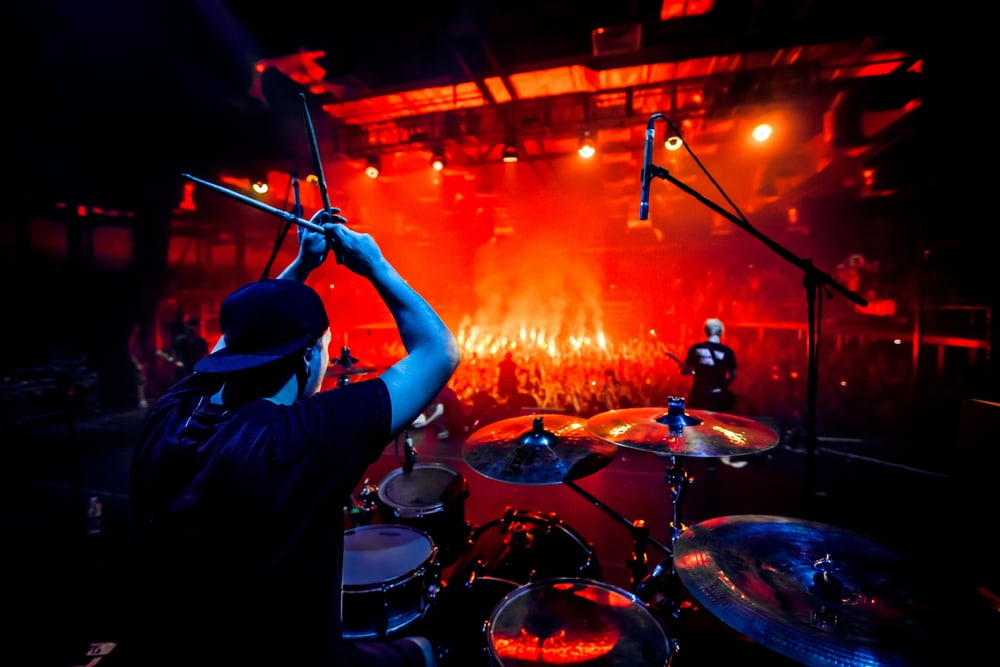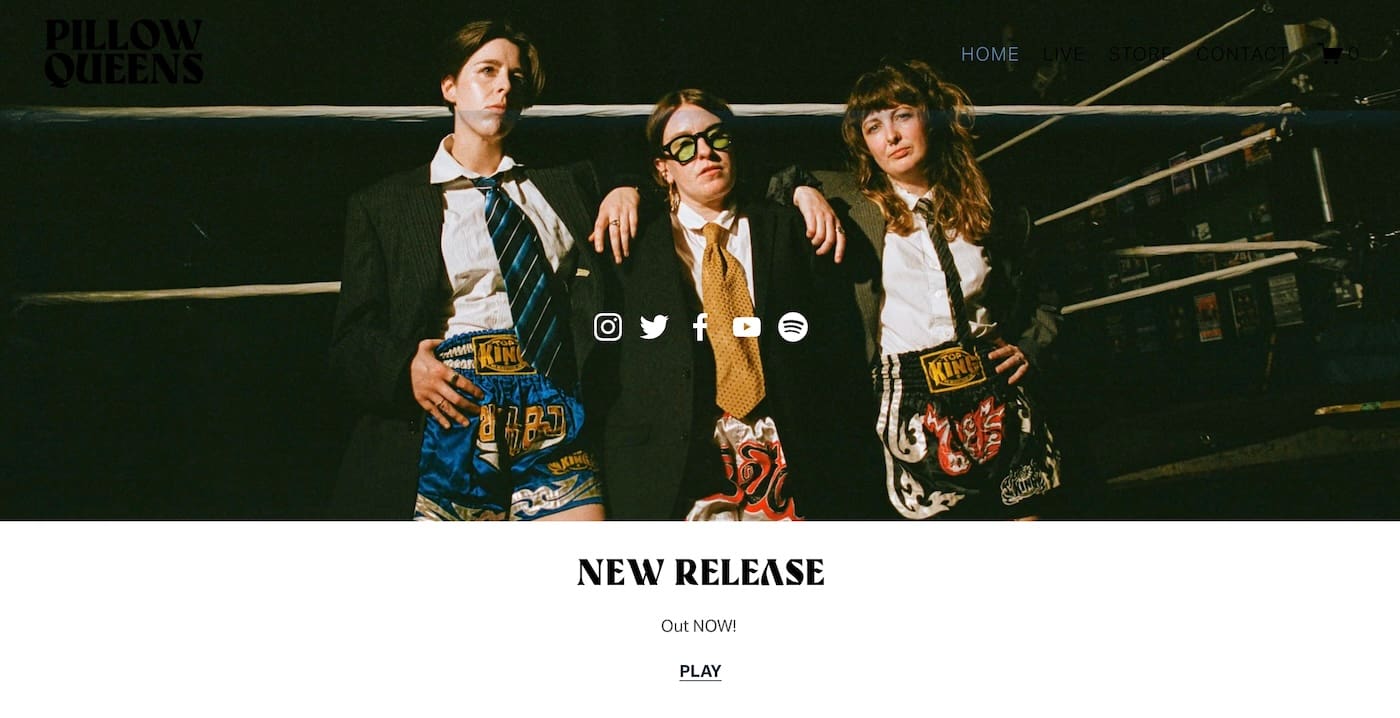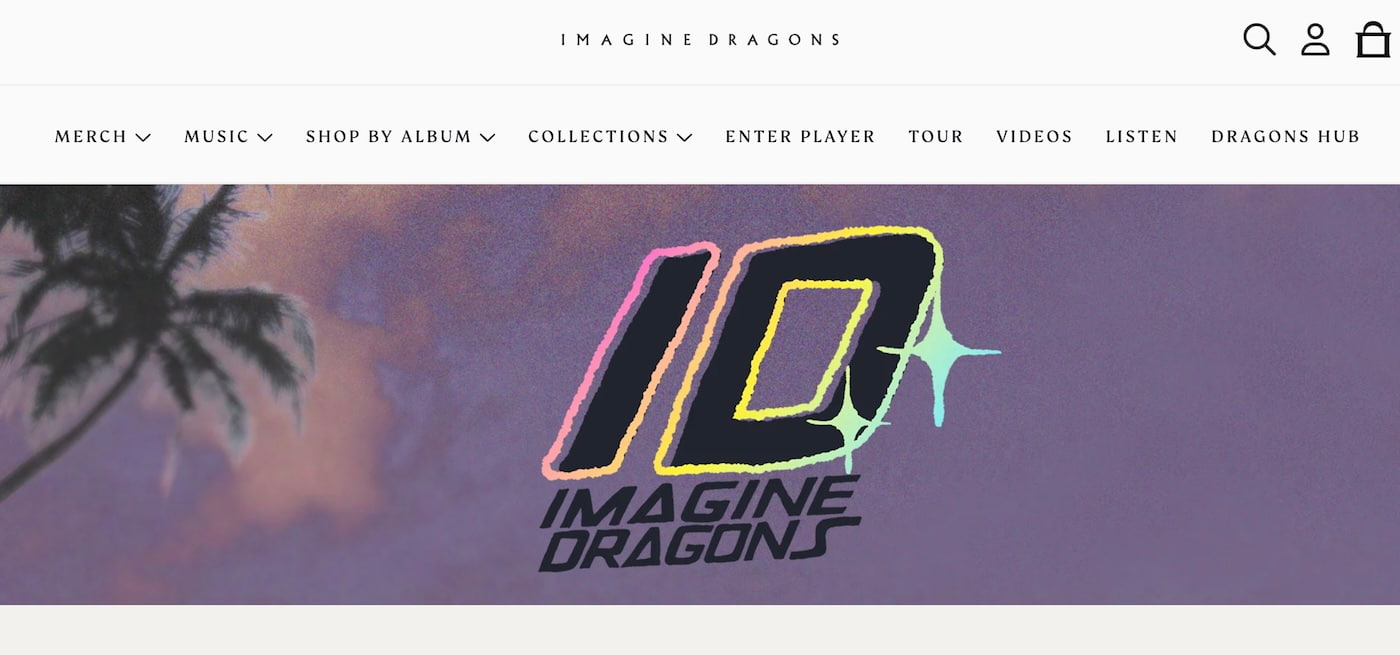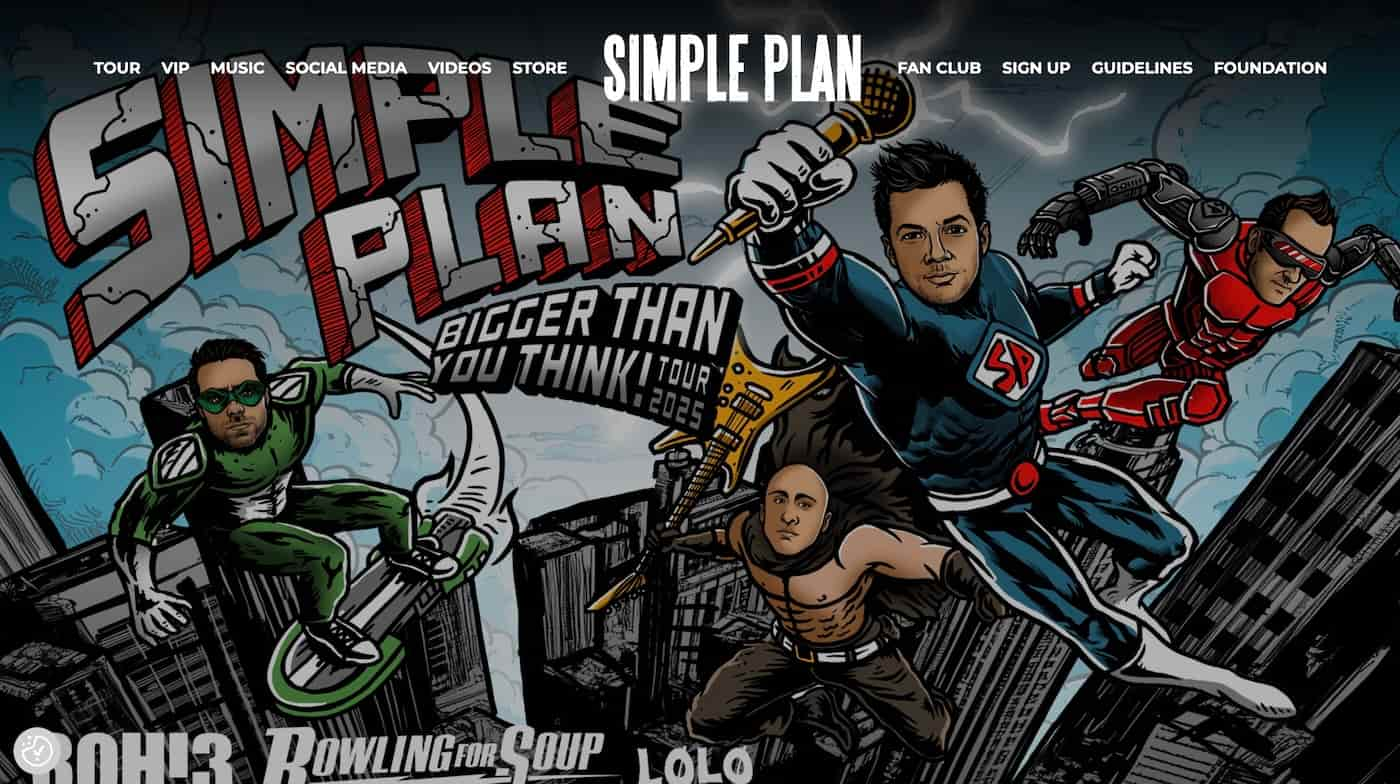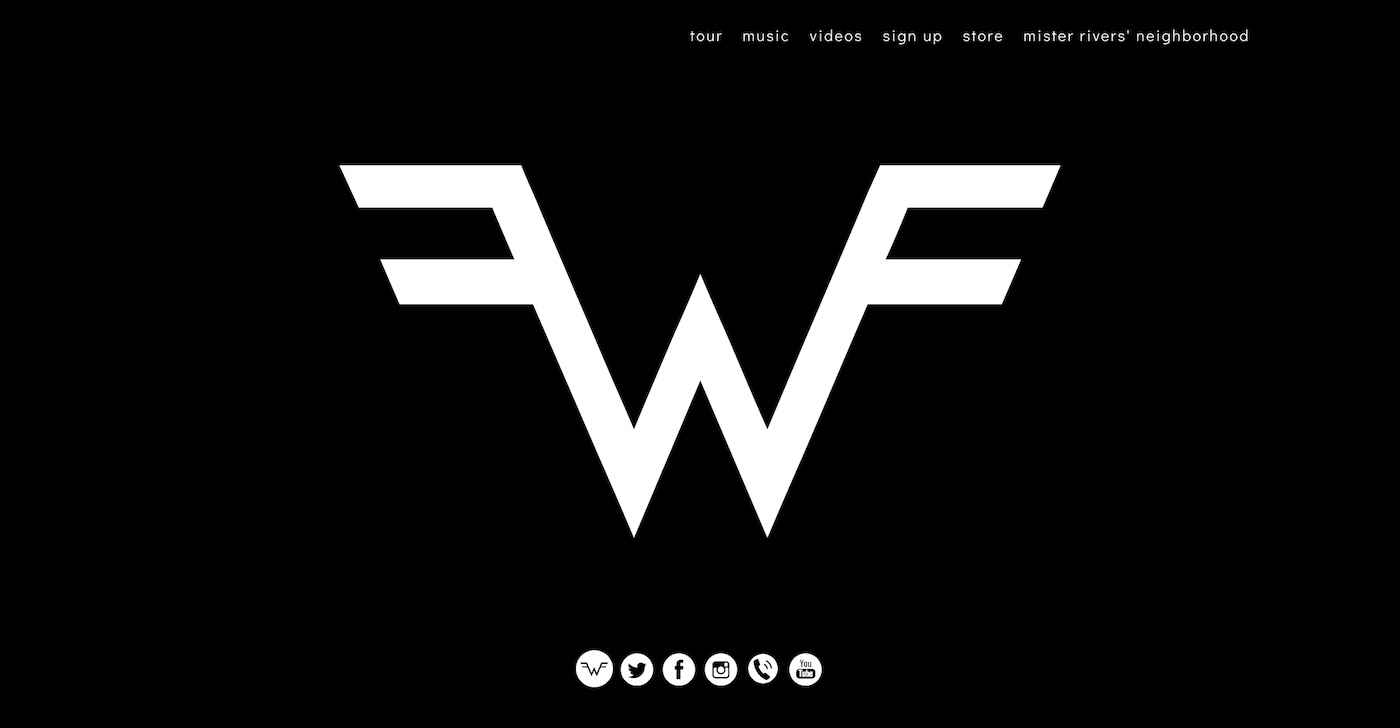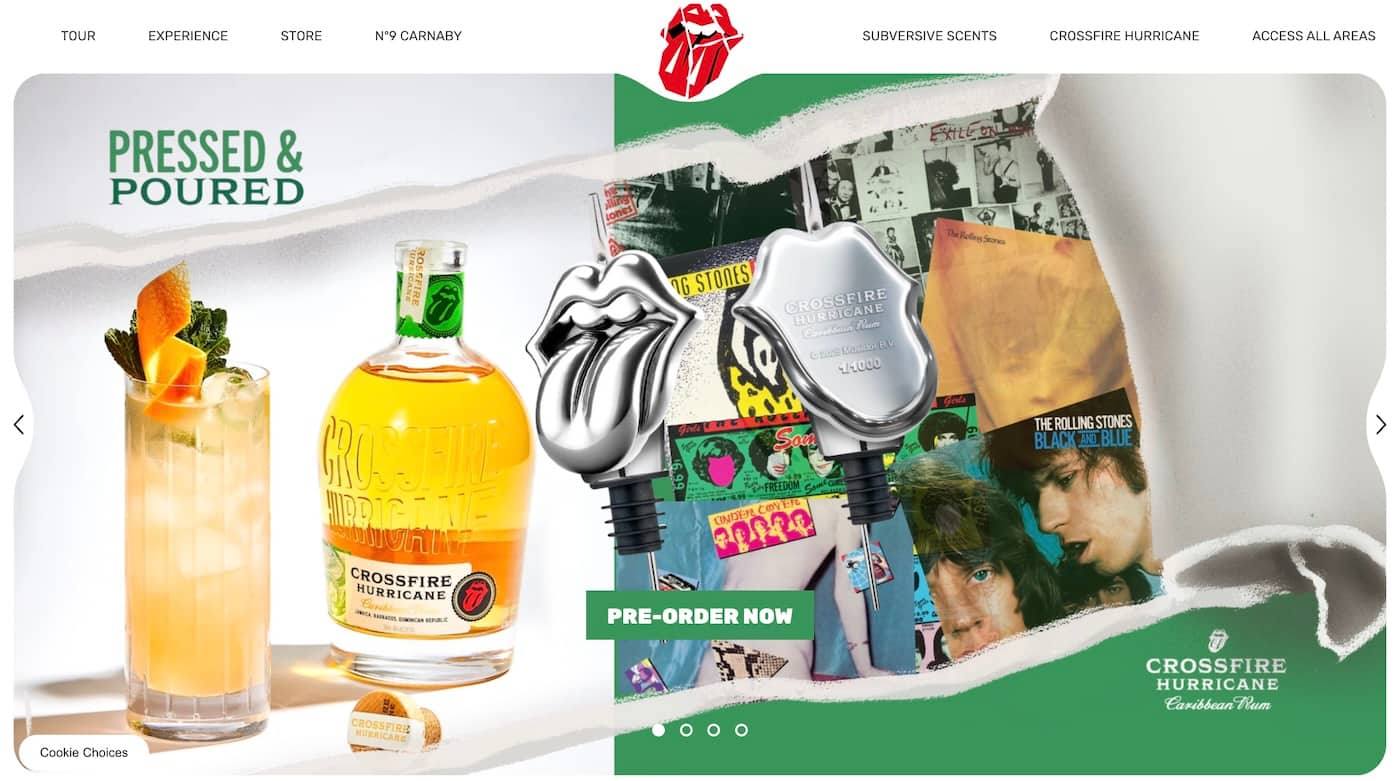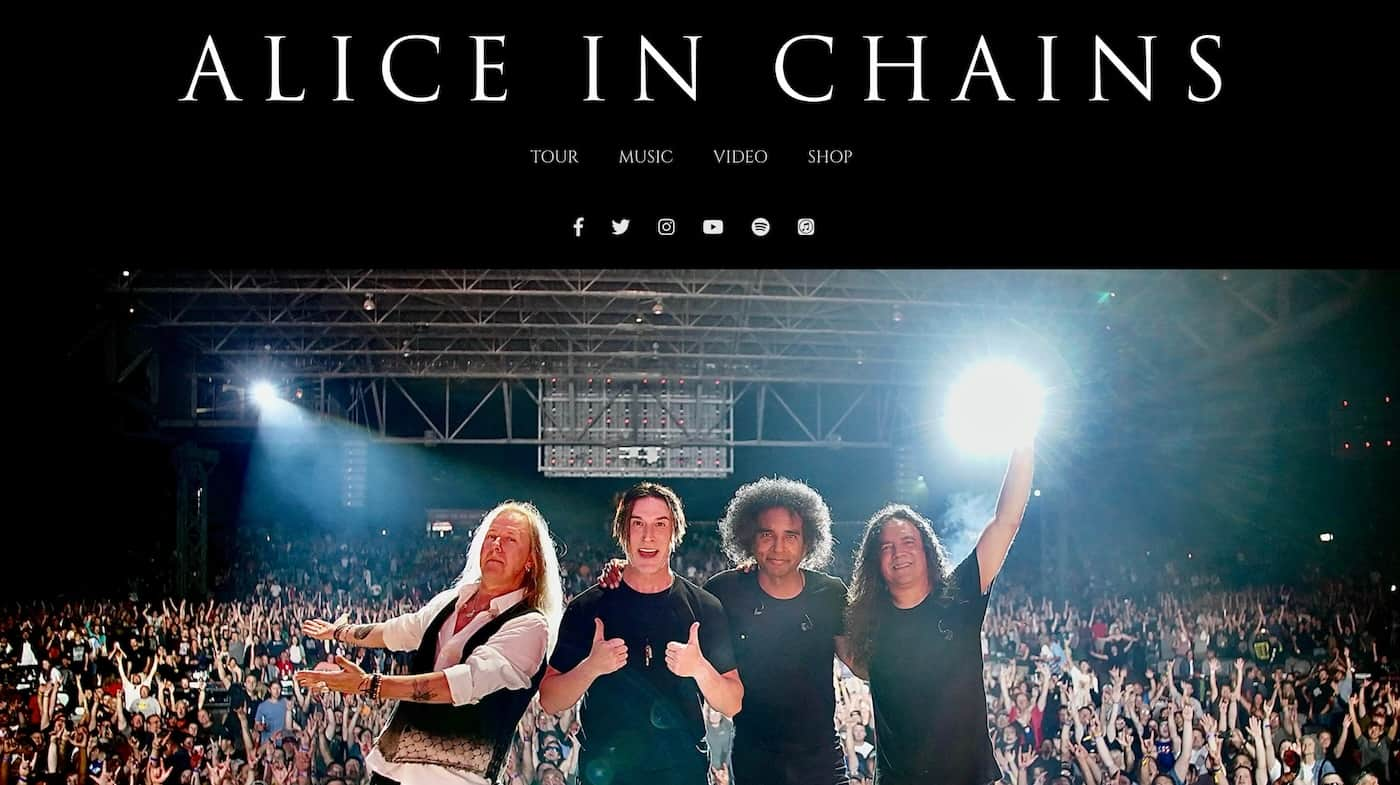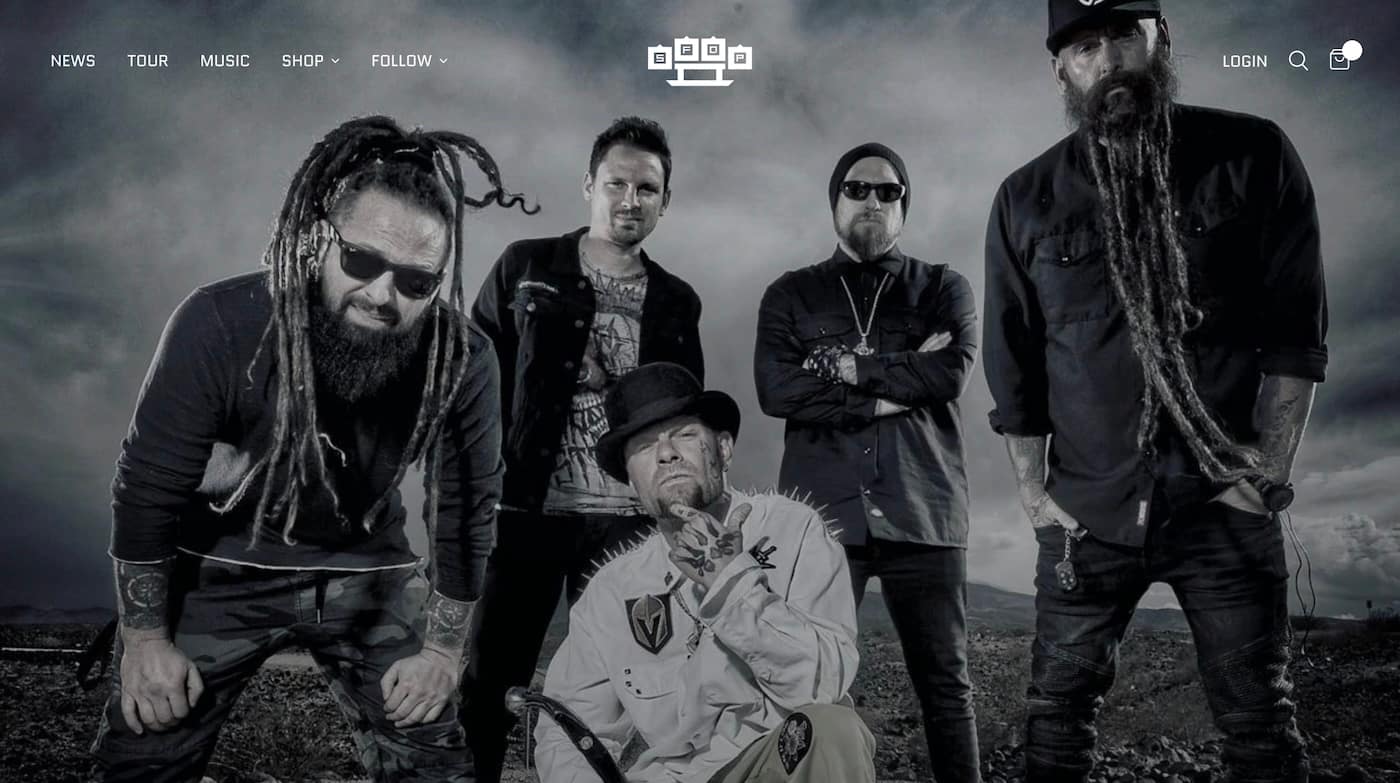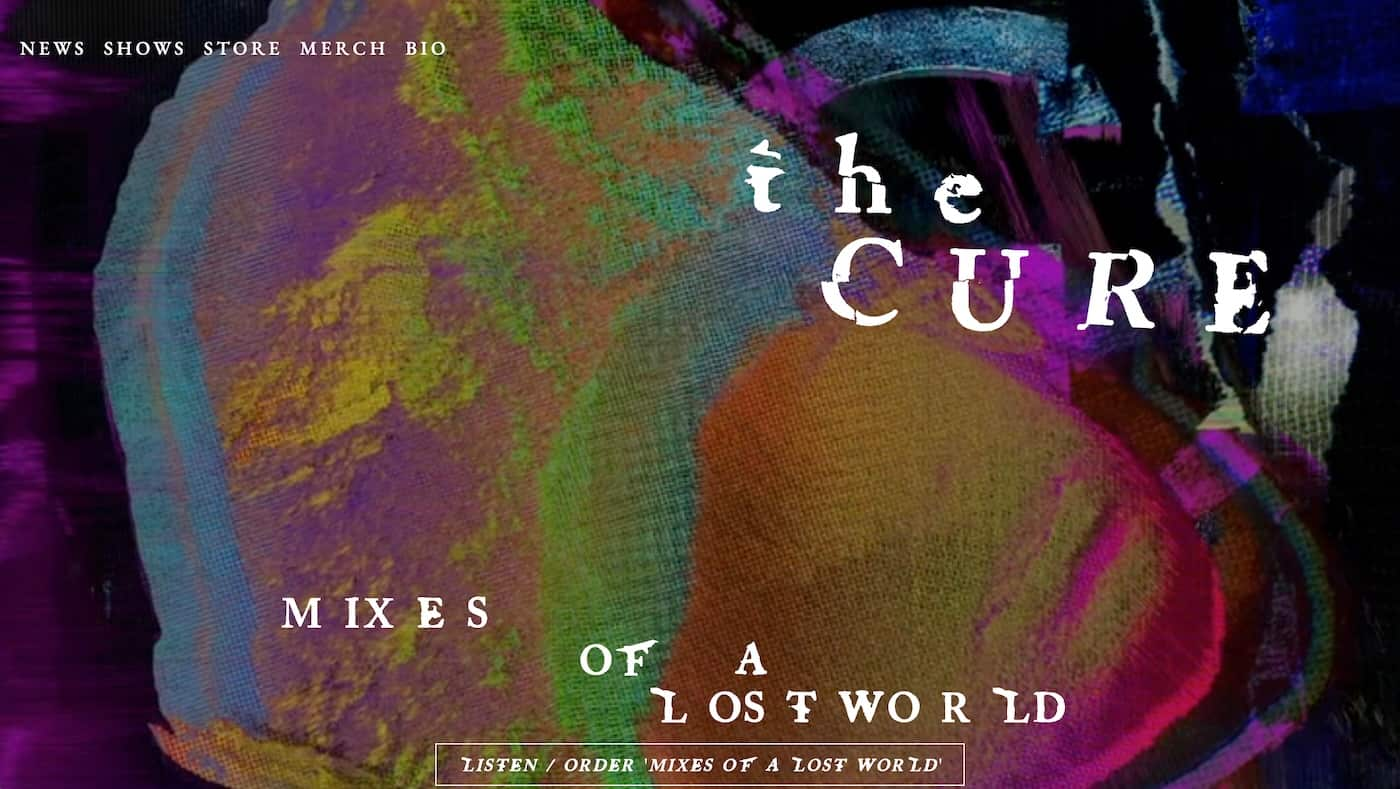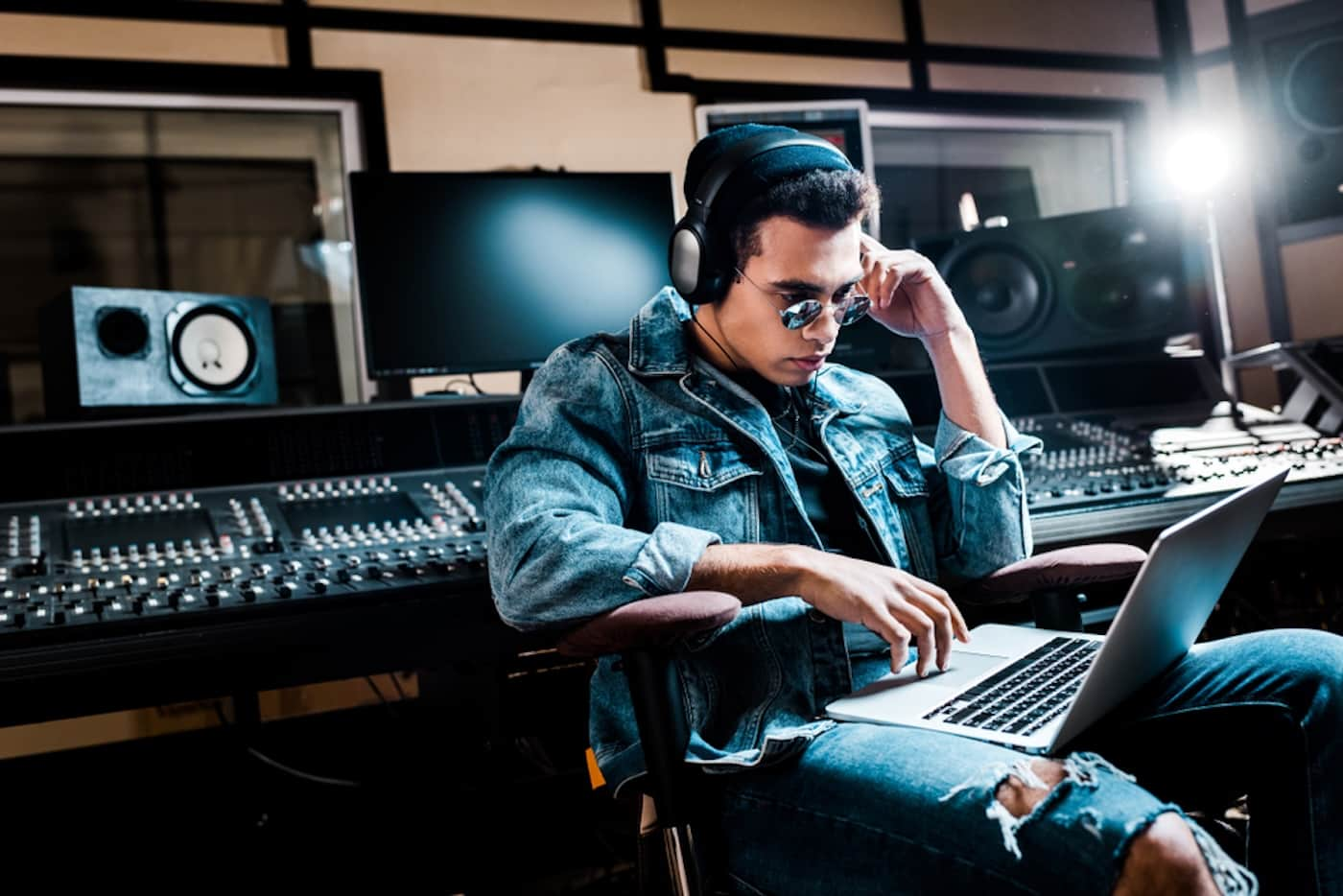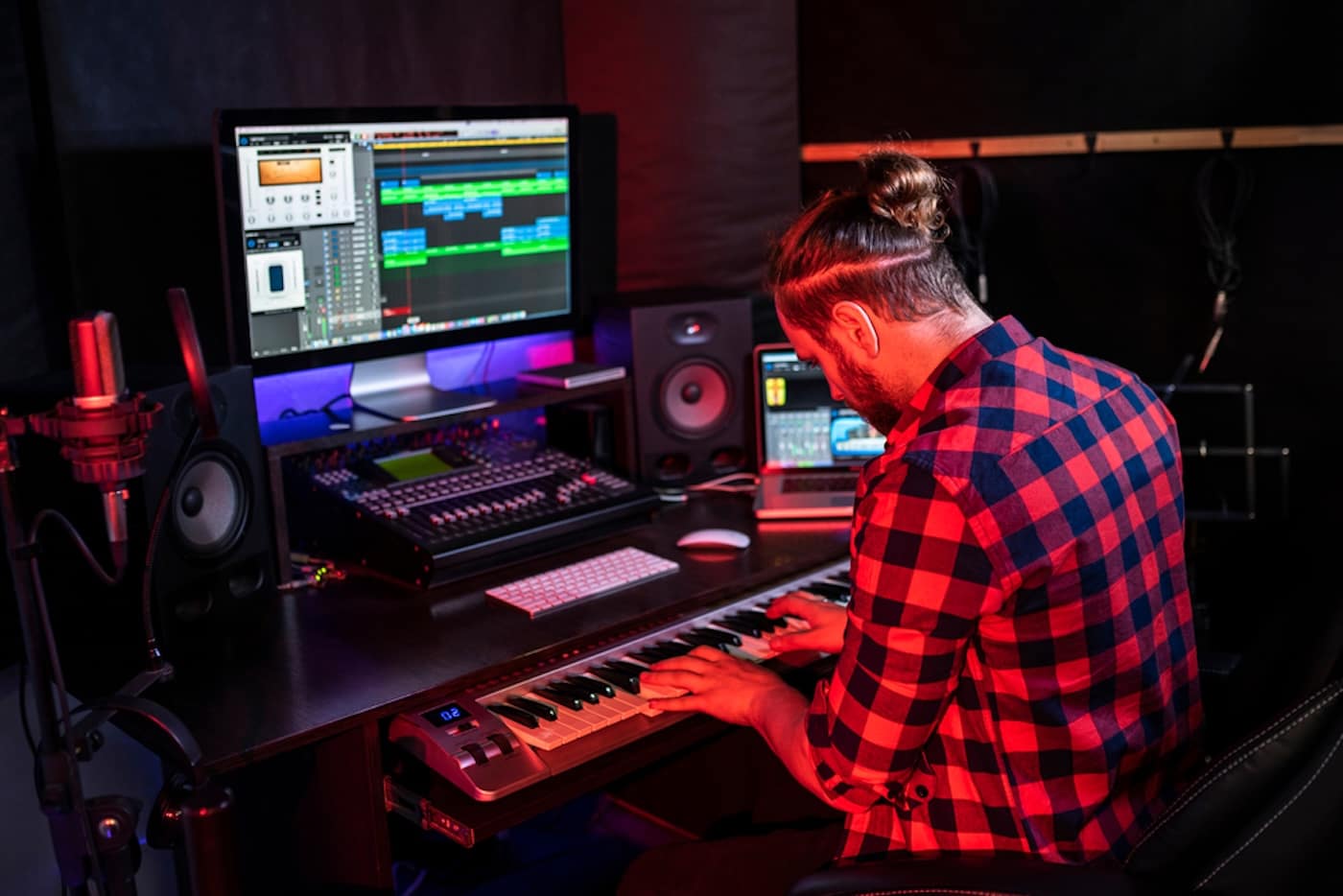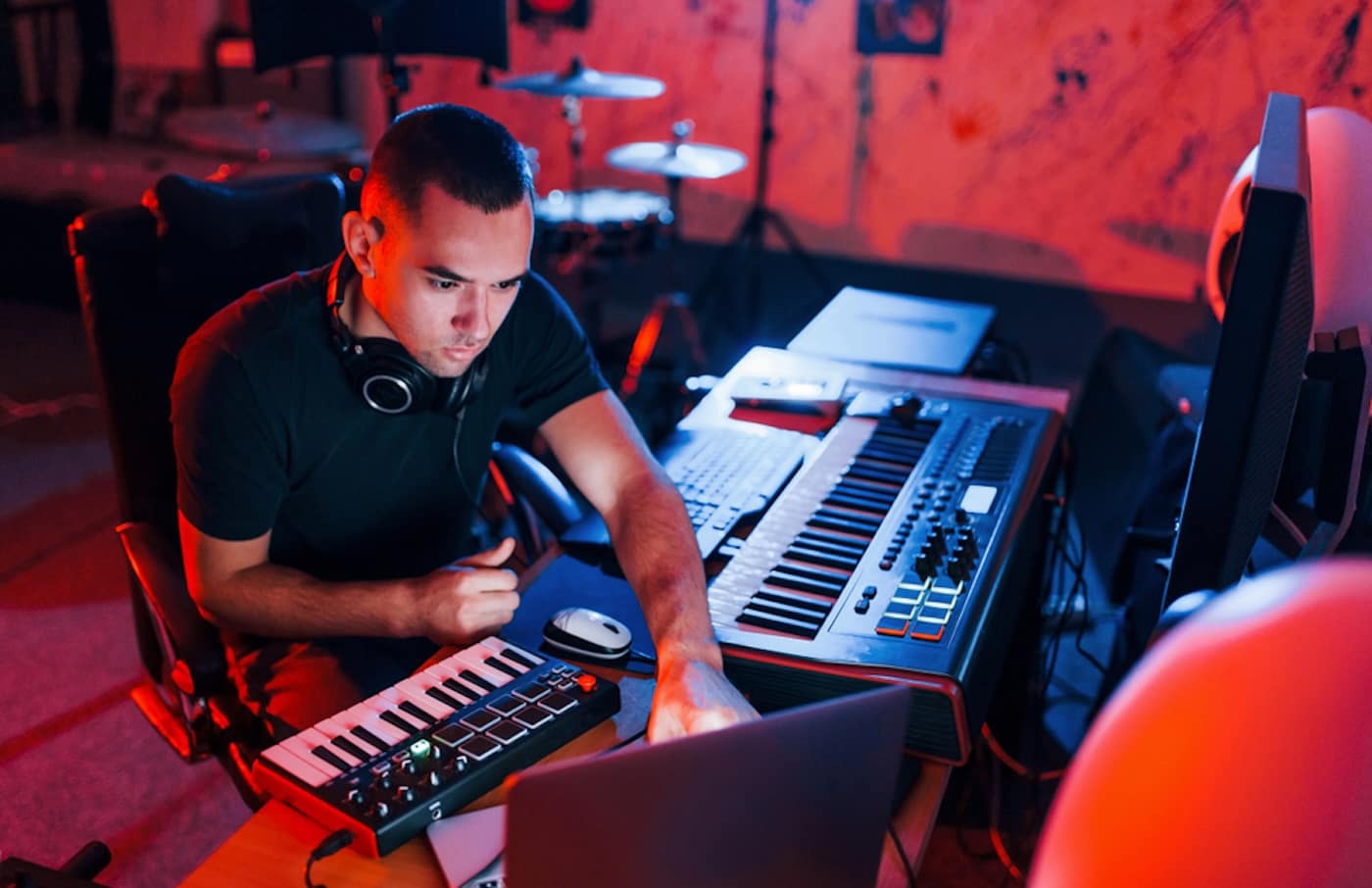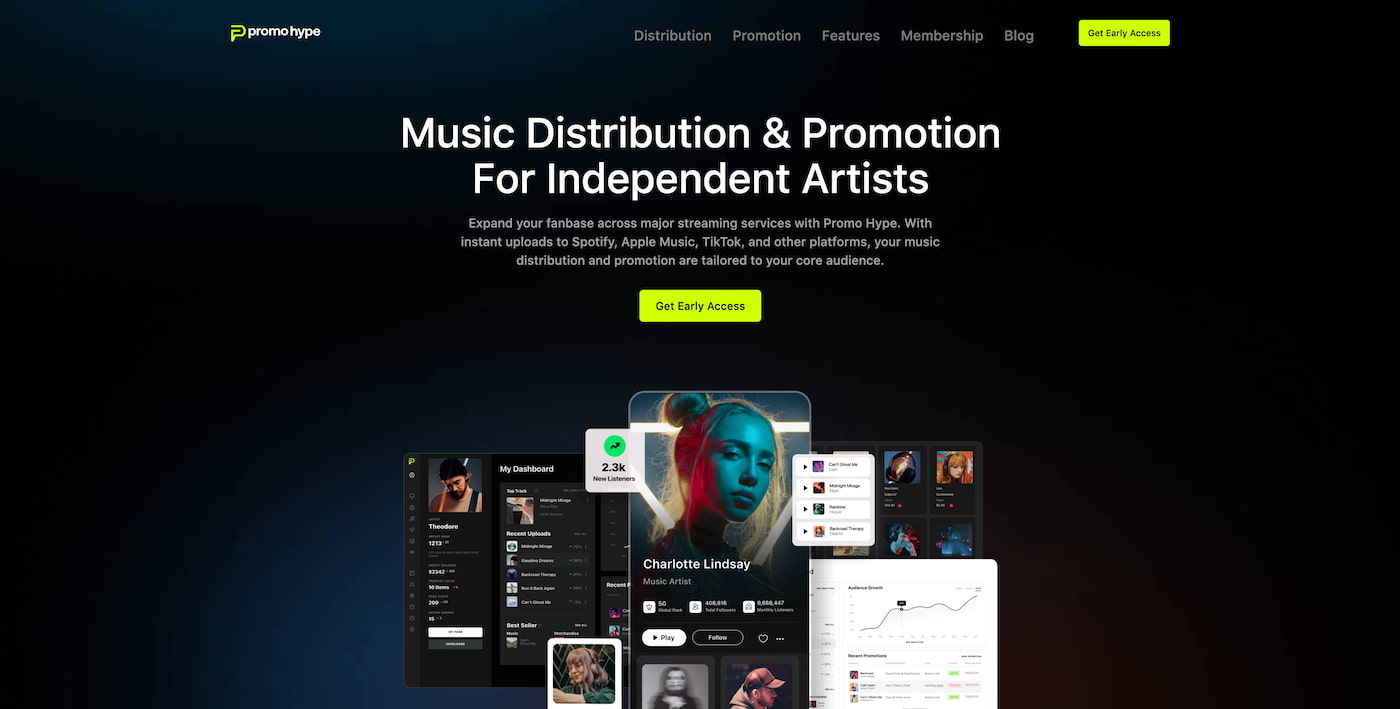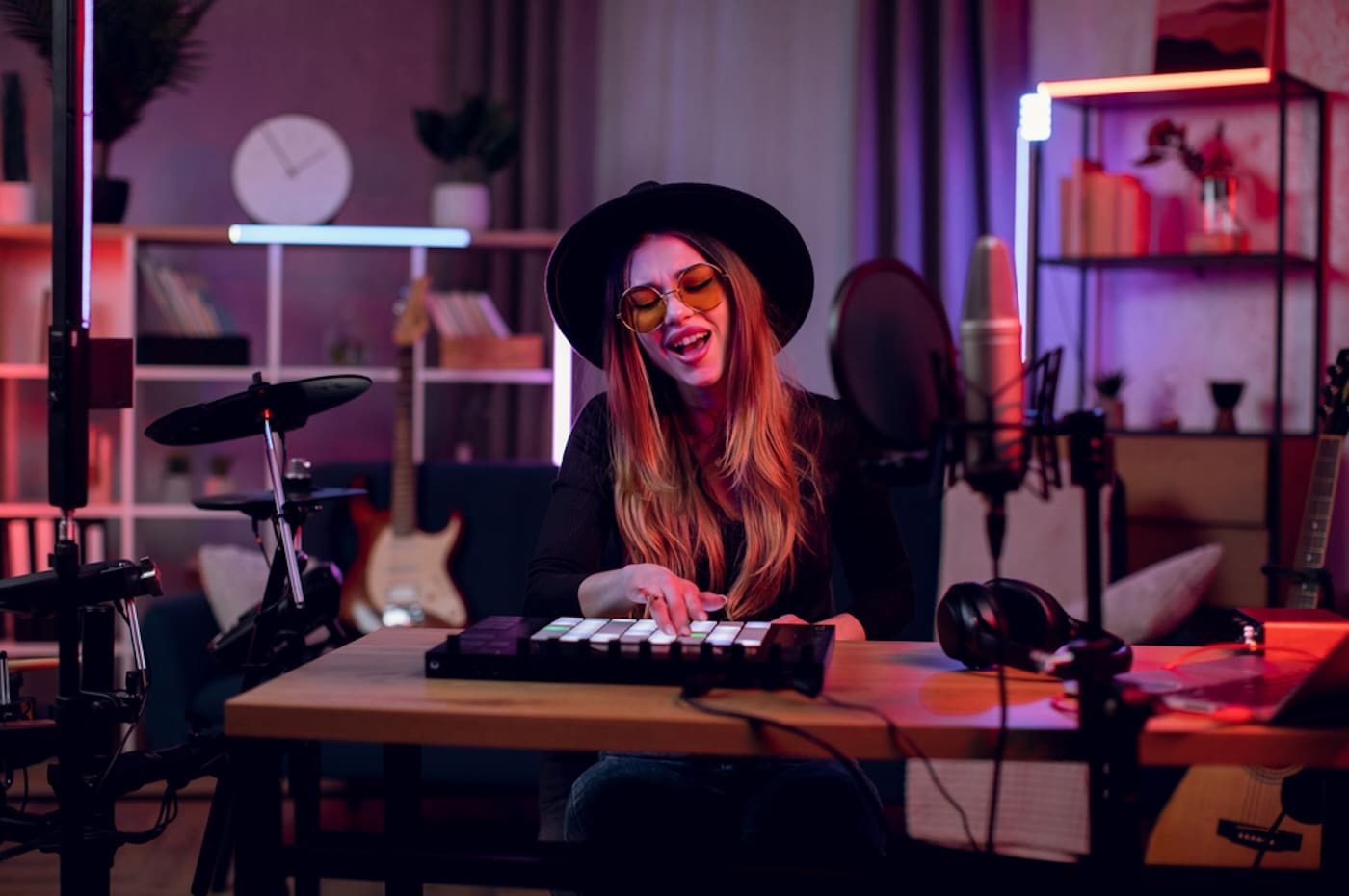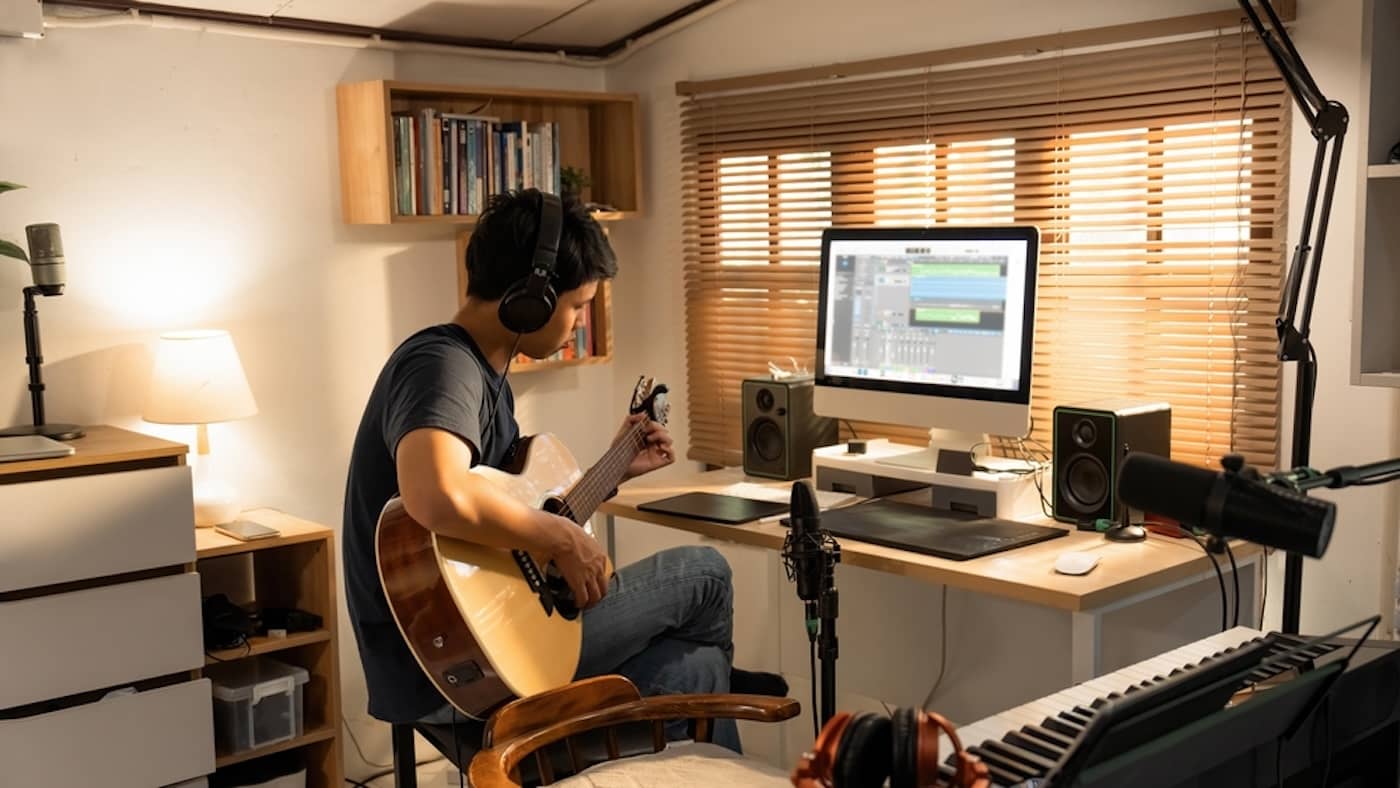Music formats have continued to evolve over the years, from physical media to online digital music distribution platforms.
Understanding the distinctions between EP, LP, and album formats is vital for independent artists when crafting their approach to releasing music.
The guide examines and explains exactly what each one is, as well as the benefits and scenarios for each format, to help you select the best option for your release strategy.
Get Early Access
To Promo Hype
What Is An EP?
An EP, which stands for “Extended Play”, is a recording that includes more songs than a single but is too short to be classed as an album.
A core element of an overarching music publishing strategy, EPs typically include three to five tracks that showcase the artist’s range.
Serving as a bridge between singles and albums, EPs were initially released on vinyl record format, presenting new music to fans.
Today, EPs are more prevalent than albums, providing a key cornerstone of an artist’s work and overall discography.
Recommended read: The ultimate guide to music royalties.
EP Content & Length
Releasing music on EPs is an excellent way for indie artists to showcase their ability to create music within their genre.
This is achieved by presenting a selection of songs spanning approximately twenty minutes, providing a concise and impactful experience.
Unlike a full-length album, the EP adopts a format similar to a mini-album, with a similar approach to variety to attract new listeners.
Tracks included on an EP are typically not released elsewhere, unlike singles, which are often taken from an artist’s albums.
When To Release An EP
There are various stages in an artist’s or band’s development when releasing an EP is the best option for their release strategy.
Their inherent flexibility lends the format to focusing on experimental content, as well as building anticipation for album launches.
Crafting a fully realized EP that showcases the artist’s strengths also makes it ideal for those hoping to get signed to a record label.
Since EPs cost significantly less to produce than albums, they’re an excellent format for gaining traction and gauging audience reactions.
Singles Or EPs? How To Decide
If you’re unsure whether to opt for producing and releasing an EP or a single, several factors can help you decide on the format.
Consider the following variables when planning your upcoming releases and whether to launch as a single release or an EP:
- The number of tracks available for release: If you’re a new artist breaking into the scene, you may lack the volume of high-quality tracks needed for an EP. Instead, you can launch a single project and test the waters, using feedback to inform your future projects.
- Long-term professional goals: For those seeking to attract record labels looking for artists, singles are an excellent way to generate buzz. Following a single release with an EP will then further demonstrate your artistic abilities.
- Fan engagement and monetization: The buzz and excitement generated by a single release enable immediate engagement from your fans and supporters. On the other hand, EPs offer long-term revenue compared to the shorter lifespan of singles, which can increase your earning capacity.
As your discography continues to grow, you can refine your release schedule to incorporate additional formats for your work.
Also read: How to Trademark your Band Name.
What Is An LP?
An LP, which is an abbreviation of the phrase “Long Play,” takes its name from the vinyl records released before CDs and digital music formats.
The format first emerged in the 1940s, when Columbia Records introduced long-playing vinyl records for consumers.
This represented an improvement over the previous 78 RPM format, which was used for releasing songs from popular music genres.
Before long, the LP became the go-to format for bands and singer-songwriters, paving the way for the album format used to this day.
LP Content & Length
Traditionally, LPs were stamped into 12-inch records, playing at 33⅓ RPM with approximately 22 minutes of playing time per side.
This allows music producers and artists to maximize the playtime of vinyl records, typically used for albums.
Additionally, the long-play format offers even greater scope for artists when placed in the context of standard and double LP formats.
Here’s an overview of these formats in more detail, along with their applications for extending the runtime of a full album.
Standard LPs
A standard format LP typically features a single vinyl record for the full-length album, usually lasting around 45 minutes of music.
In some cases, standard LPs have a longer running time, but this can result in degraded audio quality due to thinner grooves.
On the other hand, they were more affordable to produce, which is why many artists and labels opted for this format.
Double LPs
While a standard LP can include seven or more tracks, sometimes a new studio album requires more extended playtime.
In these instances, publishers opt for the double LP format, which allows for the inclusion of additional tracks that showcase their talent.
The double LP format was also sometimes used to maximize the sound quality of an album by minimizing compression.
When To Release An LP
Planning the release of an LP album depends mainly on the volume of work you have available for public consumption.
If you’re considering releasing music as an LP, weigh up the following factors before initiating the project:
- Your body of available work for release: The first and most obvious factor to consider is whether or not you have a sufficient number of tracks to fill a full-length album.
- Presence of a coherent concept: Albums are more than just collections of tracks, and each song should combine to present a coherent overarching theme. This applies to all types of albums, even if you’re not releasing music as a concept album per se.
- Inclusion of tracks suitable for single releases: Another consideration for releasing music on an album is whether it includes tracks suitable for single releases. These are pivotal to promoting your album and driving awareness and sales.
With many successful independent artists gaining widespread attention through album releases, it’s vital to strategize your schedule.
Get Early Access
To Promo Hype
What Is An Album?
While LP stands for a specific format for vinyl records, an album refers to a collection of tracks from an artist in a single unit.
This format is designed to showcase the artist’s ability to write songs in various styles with an overall coherent tone.
Some albums, such as those from progressive rock bands during the 1970s, were based on distinct concepts.
With global music revenue forecast to double by 2035, planning and recording albums remains central to promoting an artist’s work.
Types of Album Formats
While the album concept remains consistent for most artists, various formats are used to present these to the audience.
Here’s an overview of the key types of album formats used to keep fans engaged and deliver high-quality content.
1. Vinyl Records
Vinyl records represent the original format used for albums, but are still used today for selling exclusive releases to dedicated fans.
Many of the best-selling vinyl albums have sold millions of copies worldwide, with initial runs selling for large sums on the second-hand market.
2. CDs
Compact discs emerged in the 1980s, and by the following decade had become the dominant format for music fans and many DJs.
As with vinyl records, the sales of CDs trigger mechanical royalties, ensuring a steady revenue stream for artists and bands.
3. Digital Formats
The most common format for albums today is through digital formats, whether as digital downloads or playing on streaming platforms.
Launching tracks on platforms like Spotify and Apple Music sits at the core of every artist’s release schedule today.
Artists can collect performance royalties from digital formats, provided they’re registered with a Performing Rights Organization (PRO)
When To Release An Album
Since LP stands for long play and is typically used interchangeably with a full album, you can apply the same principles to both.
That said, there are additional factors worth considering when releasing music on a full–length album to your fans.
This includes aligning your album launch with upcoming tours and using its promotion to get gigs as a musician at events.
Album launches are typically held on Fridays, with the hip-hop community paying close attention to this day in particular.
For less commercial music from indie artists or niche genres such as jazz and classical, albums are often released mid-week.
Related read: Mechanical royalties vs. performance royalties.
EP Vs. LP Vs. Album: Key Differences
We’ve covered the definitions of EPs, LPs, and albums, as well as how they can be integrated into a broader release schedule.
Here’s a brief recap of the main differences between each of these formats you need to know:
- Basic definitions: The first fundamental difference between these various formats lies in their core definition, whether it is a full-length album or a shorter EP. This definition also encompasses the nature of the tracks selected and how they form a coherent whole.
- Length of the recording: Another key difference between an EP, album, and LP is the recording’s length. This ranges from around 20 minutes for an EP to between 45 minutes and up to two hours for an album.
- Relationship to artist promotion: While all artists’ releases fit into an overarching strategy of music promotion, the type of format influences this strategy. Albums are long-term projects that require extensive resources, while singles and EPs offer flexibility and affordability.
- Intended artistic statement: With its shorter length, an extended play release enables artists to focus on a select few tracks, showcasing their range. On the other hand, albums represent a more substantial reflection of their talent, with an eclectic approach to production and songwriting.
By understanding these core differences, you can refine your schedule in line with live performances and other promotional efforts.
See also: The 10 best music distribution services.
Choosing The Right Format For Music Releases
Planning an effective release schedule involves assessing multiple factors that must be considered in advance.
Here are some things to consider when selecting the correct format for your upcoming music releases:
1. Assess Where You’re At
If you’re starting as a songwriter or just becoming a music producer, your options for releases will be limited.
Alternatively, seasoned artists with previous albums already in their discographies typically work on singles, EPs, and albums simultaneously.
This is particularly common for those with artist management teams, which can assist with production and distribution processes.
2. Begin With A Single Release
Newcomers to the music industry are advised to start small, initially releasing singles before moving on to EPs and albums.
This allows them to test the waters and gauge the reaction from their fan base to determine which songs perform the best.
They can then focus on recording music that resonates with their audience and delivers the highest return on investment.
3. Follow Music Industry Trends
Understanding trends in the music industry can provide valuable insights into what content resonates with music fans.
This research also enables artists to understand music industry jargon, which can improve communication with labels and publishers.
This also enables a professional approach to music marketing strategies that capitalize on the industry’s current trends and zeitgeist.
Likewise, by following popular artists on Spotify and other platforms, creatives can develop effective strategies for social media and beyond.
4. Engage With Your Audience
Understanding the listening habits and format preferences of your fans is another crucial method for selecting the optimal release format.
This can assist with planning print runs for limited edition EPs and LPs, generating additional revenue alongside streaming platforms.
You can use this feedback to refine and improve your producer or band website, using it to promote releases of EPs and LPs.
Summary
Regardless of your current stage in the music industry, planning a release strategy is crucial for keeping your fan base engaged.
Understanding the role of EPs, LPs, and albums ensures your music is presented in the best format to reach a global audience.
As your catalog of tracks increases, you can release new material on various formats to maximize your potential earnings.
